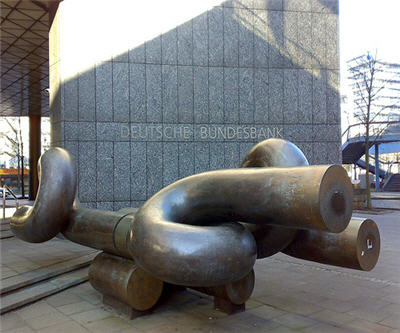European central banks may end deal capping gold sales

An executive board member of the Bundesbank, Germany’s central bank, told the Wall Street Journal Deutschland that continent’s central banks may end a 15-year-old restriction on sales of their gold holdings at its next meeting in September.
“The negotiations are still ongoing,” Carl-Ludwig Thiele said in an interview with German edition The Wall Street Journal yesterday, concerning another extension of the 1999 agreement which cap sales of Europe’s 17 central banks at 400 tonnes over a five-year period.
“No one can see into the future, that’s why it is currently under discussion whether it should be continued,” Thiele said, adding that Germany has not intention to sell any of its reserves, over and above the four to five tonnes used to mint gold coins annually.
In 1999 gold was trading at around $240 an ounce, and persistent central bank sales took much of the blame for the low price. But in recent years the official sector have become net buyers, making the agreement largely superfluous.
About half of the Bundesbank’s gold reserves of 3,396 tonnes are held overseas.
January last year the Frankfurt-based bank said it will ship back home all 374 tonnes it had stored with the Banque de France in Paris, as well as 300 tonnes held in Manhattan by the US Federal Reserve, by 2020.
So far the bank has only managed to repatriate a paltry 37 tonnes of the total, with a mere 5 tonnes held by the US finding its way back into German coffers.
Germany’s official gold holdings on a per capita basis is the highest in the world and it makes up two-thirds of the country’s total foreign reserves.
{{ commodity.name }}
{{ post.title }}
{{ post.date }}




Comments